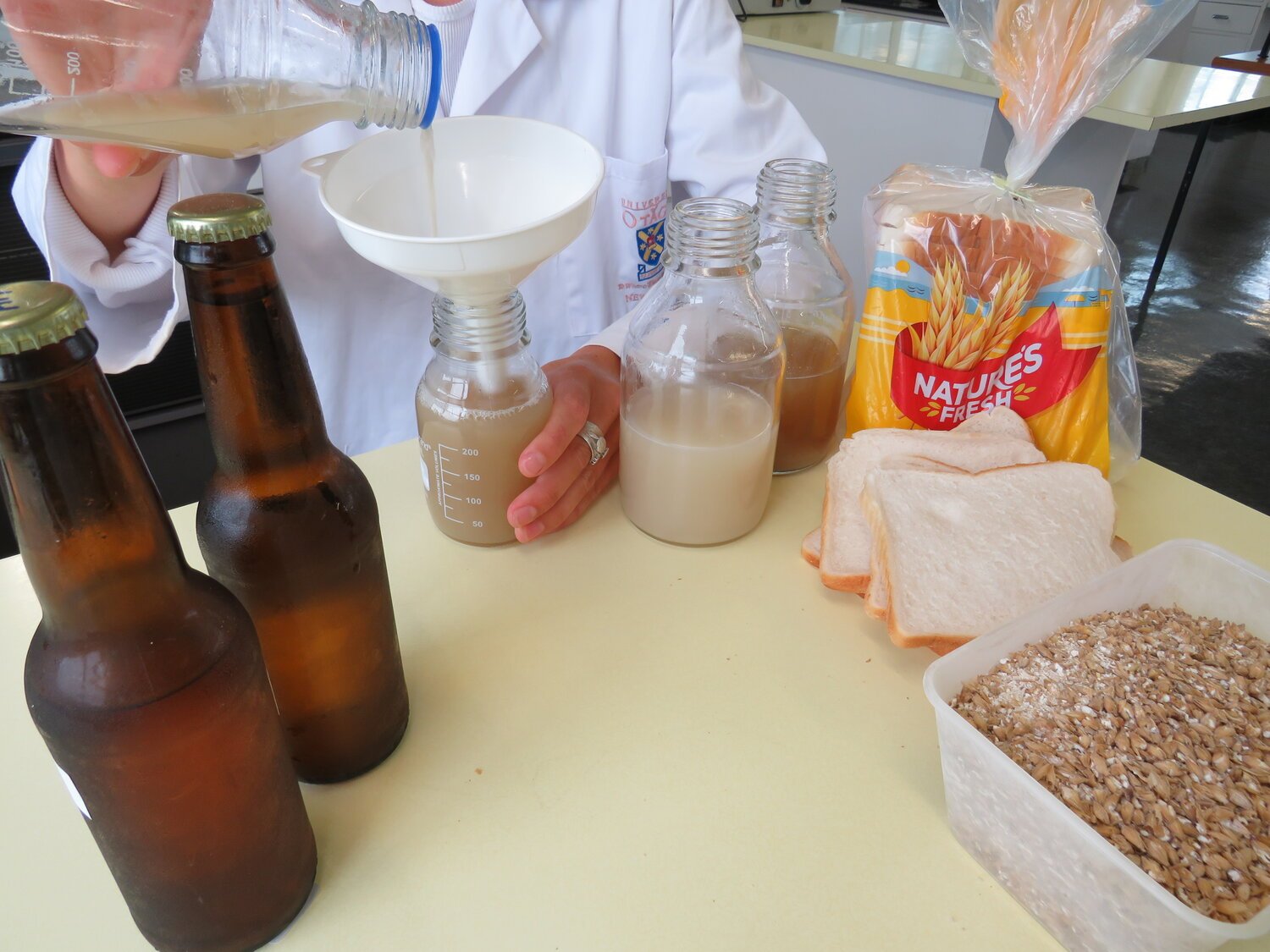
Social Innovations
Social Innovations
Using behavioural science to understand the drivers responsible for food waste in order to make recommendations on minimisation initiatives. Testing solutions and providing impact analyses.
Behavioural science research is needed to better understand the behavioural drivers responsible for food waste to support better decision-making by government, businesses, and individuals.
Our researchers have expertise in:
Understanding reasons for wasteful practices
Testing reduction solutions and providing impact analysis of their effectiveness
Developing recommendations on minimisation initiatives
Improving communications that encourage waste reduction
Miranda Mirosa
Lead Researcher for Social Innovations
Current Projects
Food Waste Innovation is carrying out New Zealand’s first sector-wide food waste reduction programme to reduce food waste in the Aged Care sector in collaboration with the Retirement Villages Association and providers Arvida and Bupa. View news article.
Past Projects
Find all Social Innovation-related projects in the Resource Hub.
Social Innovation-related Publications
O'Connor, J., Skeaff, S., Bremer, P., Lucci, G., & Mirosa, M. (2023). A critical review of on-farm food loss and waste: Future research and policy recommendations. Renewable Agriculture and Food Systems, 38, E24. https://doi.org/10.1017/S1742170523000169
Clare, G., Diprose, G., Lee, L., Bremer, P., Skeaff, S., & Mirosa, M. (2023). Measuring the impact of food rescue: A social return on investment analysis. Food Policy, 117, 102454. https://doi.org/10.1016/j.foodpol.2023.102454
Mirosa, M. (2023). He taonga te kai – an Aotearoa where food is valued not wasted. New Zealand Economic Papers, 1-6. https://doi.org/10.1080/00779954.2023.2189157
Clare, G., Mirosa, M. and Bremer, P. (2023), "The impact of COVID-19 on food rescue organisations in Aotearoa New Zealand and future crisis management", British Food Journal, Vol. 125 No. 5, pp. 1895-1913. https://doi.org/10.1108/BFJ-12-2021-1292
Thorsen, M., Croad, T., Vincent, T., & Mirosa, M. (2022). Critical success factors for food waste reduction. Cleaner Waste Systems, 3, 100059. https://doi.org/10.1016/j.clwas.2022.100059
Mirosa, M., Pearson, D., & Reynolds, C. (2020). Food waste in Australia and New Zealand. In. In: Reynolds, C., Soma, T., Spring, C. and Lazell, J., (eds.) Routledge Handbook of Food Waste. Routledge (Taylor & Francis). ISBN 9780429462795 https://doi.org/10.4324/9780429462795-18
Makhal, A., Thyne, M., Robertson, K., & Mirosa, M. (2019). “I don't like wonky carrots”- an exploration of children's perceptions of suboptimal fruits and vegetables. Journal of Retailing and Consumer Services, 54, 101945. https://doi.org/10.1016/j.jretconser.2019.101945
Cahayadi, J., Geng, X., Mirosa, M., & Peng, M. (2019). Expectancy versus experience - Comparing Portion-Size-Effect during pre-meal planning and actual intake. Appetite, 135, 108-114. https://doi.org/10.1016/j.appet.2019.01.012
Mirosa, M., Liu, Y., & Mirosa, R. (2018). Consumers’ Behaviors and Attitudes toward Doggy Bags: Identifying Barriers and Benefits to Promoting Behavior Change. Journal of Food Products Marketing, 24(5), 563-590.
https://doi.org/10.1080/10454446.2018.1472699Mirosa, M., Yip, R., & Lentz, G. (2018). Content Analysis of the ‘Clean Your Plate Campaign’ on Sina Weibo. Journal of Food Products Marketing, 24, 539-562. https://doi.org/10.1080/10454446.2018.1472696
Andrews, L., Kerr, G., Pearson, D., & Mirosa, M. (2018). The attributes of leftovers and higher-order personal values. British Food Journal, 120(9), 1965-1979. 10.1108/BFJ-08-2017-0442
Campbell, H., Evans, D., & Murcott, A. (2017). Measurability, austerity and edibility: Introducing waste into food regime theory. Journal of Rural Studies, 51, 168-177. https://doi.org/https://doi.org/10.1016/j.jrurstud.2017.01.017
Pearson, D., Mirosa, M., Andrews, L., & Kerr, G. (2017). Reframing communications that encourage individuals to reduce food waste. Communication Research and Practice, 3(2), 137-154. https://doi.org/10.1080/22041451.2016.1209274
Mirosa, M., Pearson, D. & Pearson, R. (2017). “The Ethics of Food Waste”, in Rawlinson, M.C. Q7 (Ed.), Routledge Handbook of Food Ethics, Routledge, London, 400-409. Abingdon, UK: Routledge.
Mirosa, M. Lesson plan development (funded by NZ China Food Protection Network): ‘Why do we waste so much food?’ Strategies and Starters: The New Zealand Teachers’ Resource, Term 3, 2017
http://www.nzfssrc.org.nz/resourcesMirosa, M., Mainvil, L., Horne, H., & Mangan-Walker, E. (2016). The social value of rescuing food, nourishing communities. British Food Journal, 118, 3044-3058. https://doi.org/10.1108/BFJ-04-2016-0149
Mirosa, M., Munro, H., Mangan-Walker, E., & Pearson, D. (2016). Reducing waste of food left on plates: Interventions based on means-end chain analysis of customers in foodservice sector. British Food Journal, 118, 2326-2343. https://doi.org/10.1108/BFJ-12-2015-0460
Evans, D., Campbell, H. and Murcott, A. (eds.) (2015) Waste Matters: New Perspectives on Food and Society. Sociological Review Monographs (Book 60): Wiley Blackwell. https://doi.org/10.1111/jiec.12307
































